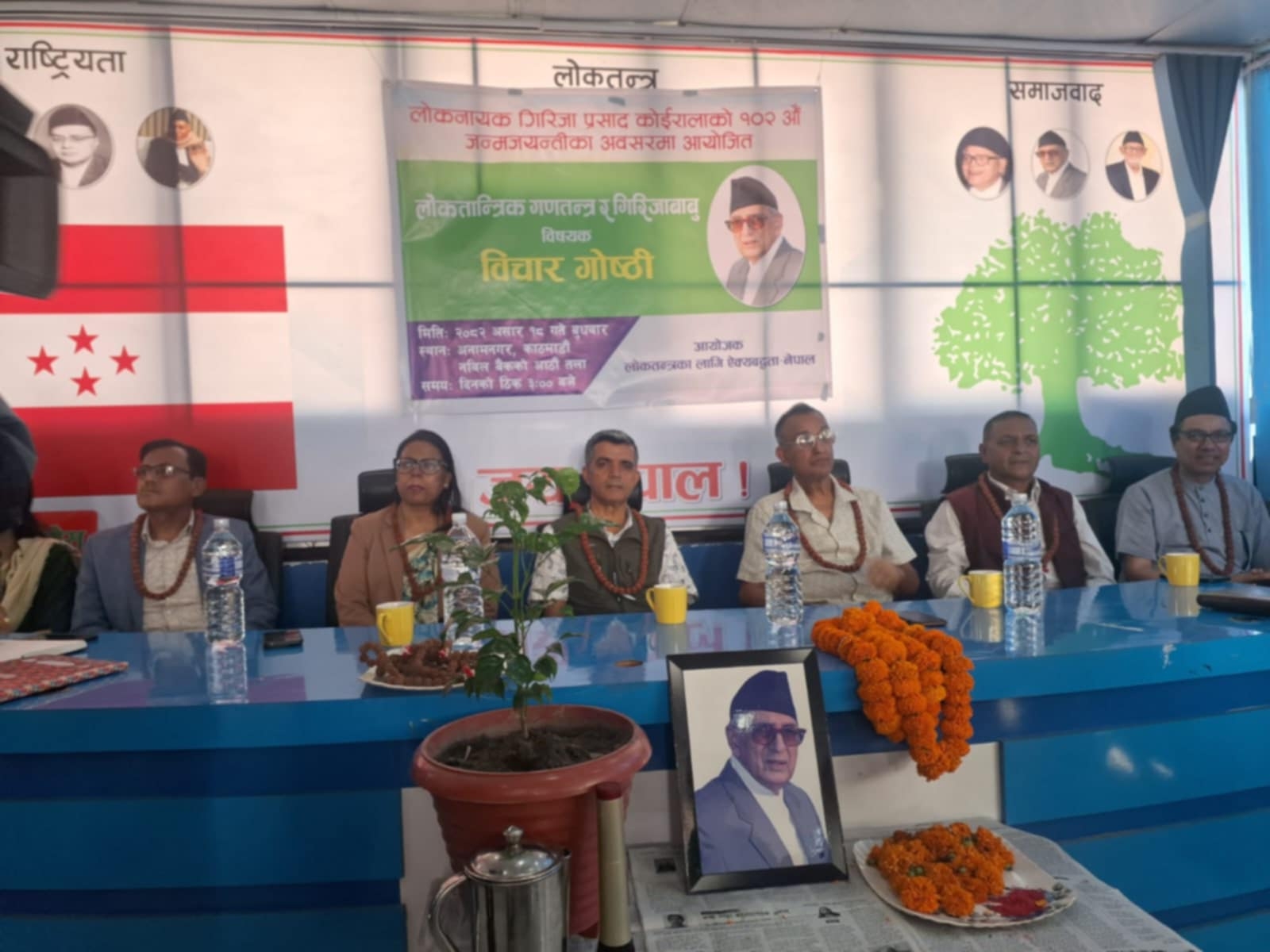

KATHMANDU: Senior Nepali Congress leader Mahesh Acharya has said that Girija Prasad Koirala embodied all the qualities necessary to build a strong political party and steer the country through historic changes.
Speaking at a symposium titled “Democratic Republic and Girijababu”, organized on the occasion of the 102nd birth anniversary of the late leader at General Secretary Gagan Thapa’s private secretariat, Acharya described Koirala as a statesman deeply rooted among both party cadres and the public.
Acharya emphasized that without Koirala, the Comprehensive Peace Agreement with the Maoists would not have been possible.
“He was involved in party politics from the age of 21 and led the 2003 BS labor movement to eventually handing over power to Prachanda in 2065 BS,” he said. “Girijababu had every quality required in a political leader. He listened to the people with patience. Comparing today’s leaders to him is impossible.”
Highlighting Koirala’s rare political capability, Acharya stated, “He understood that leading a political party was not just about being among the people but also translating their voices into policy, coordinating with the government, and delivering results.”
He said these four qualities — connecting with the people, listening to their grievances, integrating their demands into policy, and coordinating with the state — defined Koirala’s leadership. Failing in even one of them, Acharya argued, would result in political failure.
Quoting former Indian Prime Minister Manmohan Singh, Acharya said Singh had once called Girija Prasad Koirala “a statesman of Asia.” He credited Koirala for leading peace negotiations, abolishing the monarchy, and successfully convening the Constituent Assembly during the country’s most politically divided times.
Acharya said, “Only Girijababu could have brought the Maoists into mainstream politics through the peace agreement that addressed victims of the conflict, countered the king’s power grab, and satisfied international observers.”
Calling Koirala’s leadership courageous and transformative, he urged the current generation to learn from his example.
“His courage to connect with the people, listen to their aspirations, and work relentlessly for implementation is something this generation must study,” he added.
Acharya also praised Koirala’s push for economic liberalization after 2048 BS, stating that he was instrumental in encouraging private sector involvement and entrepreneurship because he understood that the state alone could not drive development.
Referring to Koirala’s socialist values, Acharya said, “His socialism meant ensuring that children of the poor could attend school and that women could give birth safely. His idea of policymaking always centered on the needs of ordinary people.”
Acharya concluded that Nepal’s most pressing issue today is how to accelerate national transformation. “If there is political will and commitment, Nepal can undergo a complete transformation in just five years,” he said.
Congress central committee member and lawmaker Pratima Gautam, who chaired the event, said Girija Prasad Koirala had the ability to unite not just his party faction but also bring other parties together under common national agendas.
Veteran journalist Bishnu Nishthuri expressed concern over what he described as the erosion of the Congress party’s former legacy. “Once, Congress had values, ideas, knowledge, and belief — that’s what sustained it. Now, those values are replaced by the influence of money,” he said.
The program was also addressed by lawmakers Durlav Thapa, Mahendra Sharma, and Somanath Ghimire, among others.
Prominent Congress leaders and well-wishers including Pushpa Bahadur Shah, Kusum Thapa, Sapana Rajbhandari, Maina Karki, and Sita Mijar were also in attendance.